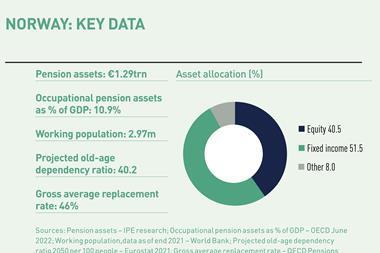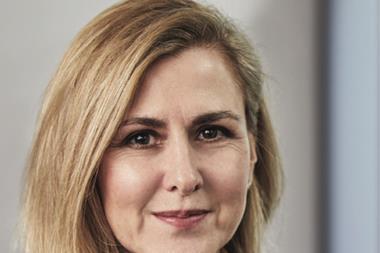The chair of the International Sustainability Standards Board, Emmanuel Faber, has warned that the board must weigh the pressure to finalise its first two sustainability standards with the need for adequate due process and ensuring its rulebook is interoperable with rules produced by other standard-setting initiatives.
Faber said: “We have to manage the balance between the fundamental due processes of good standard setting and that urgency.”
The ISSB chair’s remarks came in a speech delivered this week in London to delegates attending the International Reporting Standards Foundation’s World Standard Setters Conference.
Faber also noted the impact of rule-making drives from both the Securities and Exchange Commission and the European Financial Reporting Advisory Group (EFRAG) on the emerging sustainability reporting landscape.
EFRAG, he said, “will probably finalise [their] technical advice […] to the Commission in the next couple of months.”
The new board’s role, Faber emphasised, was to “avoid further divergence” in the already fragmented landscape of sustainability reporting. In addition, he underscored the ISSB’s commitment to pursuing the notion of single materiality in its standards.
The ISSB chief’s remarks after staff at the ISSB last week reported a broadly positive response to the board’s first two proposed sustainability accounting standards.
Staff said: “The strong response rate suggests significant and widespread interest across the global capital markets in [draft] S1, including the work of the ISSB to develop IFRS Sustainability Disclosure Standards more broadly.”
The ISSB issued International Financial Reporting Standard S1, General Requirements for Disclosure of Sustainability-related Financial Information, and IFRS S2, Climate-related disclosures, in March.
IFRS S1 sets out the broad requirements for disclosing sustainability-related financial information to primary users of financial statements, while IFRS S2 describes the requirements for identifying, measuring, and disclosing climate-related risks and opportunities.
“We have to manage the balance between the fundamental due processes of good standard setting and that urgency”
Emmanuel Faber, chair of ISSB
The proposals in the two exposure drafts build on the work of the Climate Disclosure Standards Board, the International Accounting Standards Board, the Value Reporting Foundation, Task Force on Climate-Related Financial Disclosures, and the World Economic Forum.
In total, the board received 735 comment letters on its general sustainability reporting requirements standard and an additional 700 letters on the climate-reporting standard.
Staff also noted that both asset managers and owners representing “a wide range of sizes (in terms of assets under management), geographies and investment strategies” were represented in the consultation feedback on draft S1.
This response, they explained, suggested “a high level of interest from investors and other users of general purpose financial reporting”.
In terms of the high-level feedback on draft S1, the staff analysis found that nearly all respondents supported the ISSB’s overall aim to develop a comprehensive global baseline of sustainability-related financial disclosures for the capital markets.
In particular, they “strongly welcomed” the push to consolidate multiple sustainability reporting standards and frameworks “into a single set of high-quality sustainability disclosures standards”.
Staff also said that “many” respondents had “encouraged the ISSB to continue moving at pace in issuing the final standards, with some respondents emphasising the importance of both timeliness and quality”.
The comment analysis of the board’s proposed climate-change reporting standard, S2, revealed similar strong support.
Asset manager Schroders said: “This reporting will force companies to recognise and explain both their risks and opportunities relating to sustainability, which is clearly a very positive move.”
However, their comment letter went on to warn that “there will need to be significant process development which will result in cost implications for businesses.”
Nordea praised the ISSB’s proposals saying they “reflect a change in the quality and comparability of sustainability and climate disclosures that is essential to an efficient market response to ESG-related risks and climate change”.
The firm also supported the ISSB’s drive to align its standard setting with the Task Force on Climate-related Financial Disclosures, the Greenhouse Gas Protocol, and the Sustainability Accounting Standards Board’s standards, as well as to develop an approach that was consistent with reporting initiatives in the US and Europe.
Alongside the support from asset managers, the European Union’s markets watchdog, the European Securities and Markets Authority (ESMA), welcomed the ISSB’s initiative as a useful complement to the EU’s work on sustainability reporting.

ESMA said there was scope for the two initiatives to reach “common ground” on the essential building blocks of sustainability standard setting, disclosure rules, and identifying business’s “sustainability-related impacts on the environment and people”.
ESMA noted, however, that it was “necessary that regional standardisation, most notably in Europe, and international efforts go hand-in-hand” to promote sustainable investment and support the global transition to a more sustainable economy.
This broader focus in the nascent European reporting framework has emerged as a major faultline with the ISSB’s standards.
In broad terms, whereas the ISSB has adopted an entity-focused definition of materiality, the EFRAG standards require companies to disclose how sustainability affects their performance and how they impact on the environment and wider society.
Speaking on 27 September, Faber said: “We will not move. That’s why we were created. That’s where we are going.”
He added, however, that the board did not see this position as “opposed to double materiality” given its desire to work with the Global Reporting Initiative.
The latest digital edition of IPE’s magazine is now available
Topics
- Corporate governance
- Emmanuel Faber
- European Financial Reporting Advisory Group (EFRAG)
- European Securities and Markets Authority (ESMA)
- Global Reporting Initiative (GRI)
- International Financial Reporting Standards (IFRS)
- International Sustainability Standards Board (ISSB)
- Markets
- materiality
- Reform & Regulation
- reporting
- Securities and Exchange Commission (SEC)
- Sustainability Accounting Standards Board (SASB)
- Task Force on Climate-related Financial Disclosures (TCFD)










